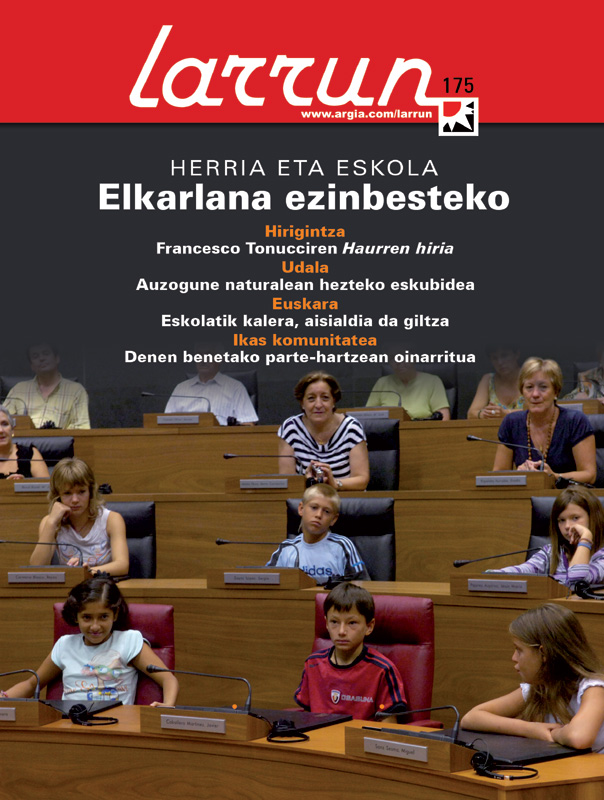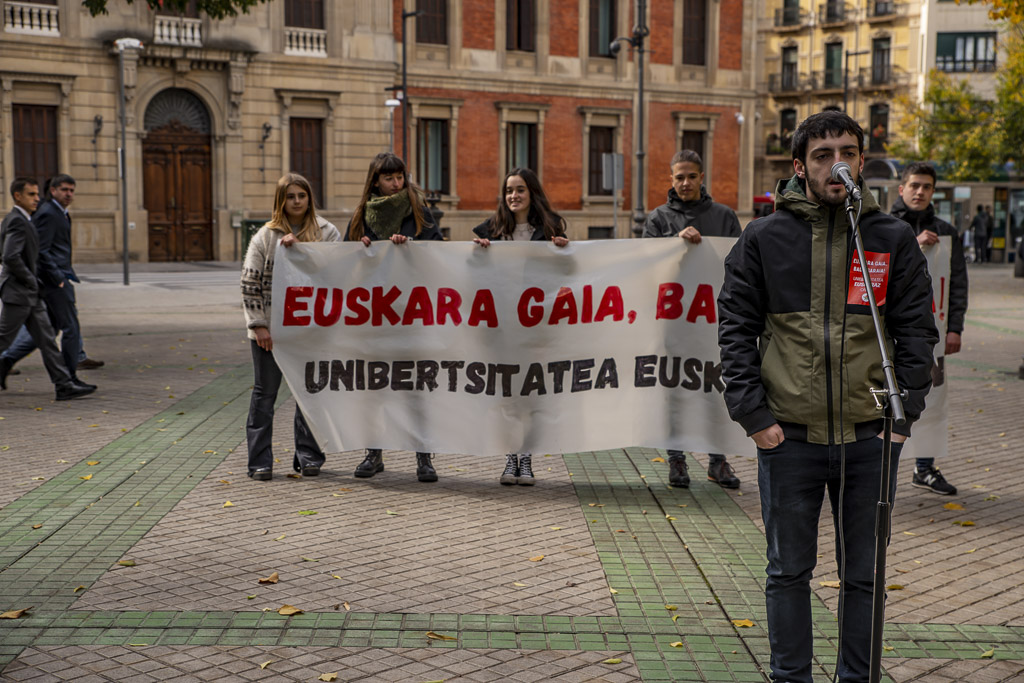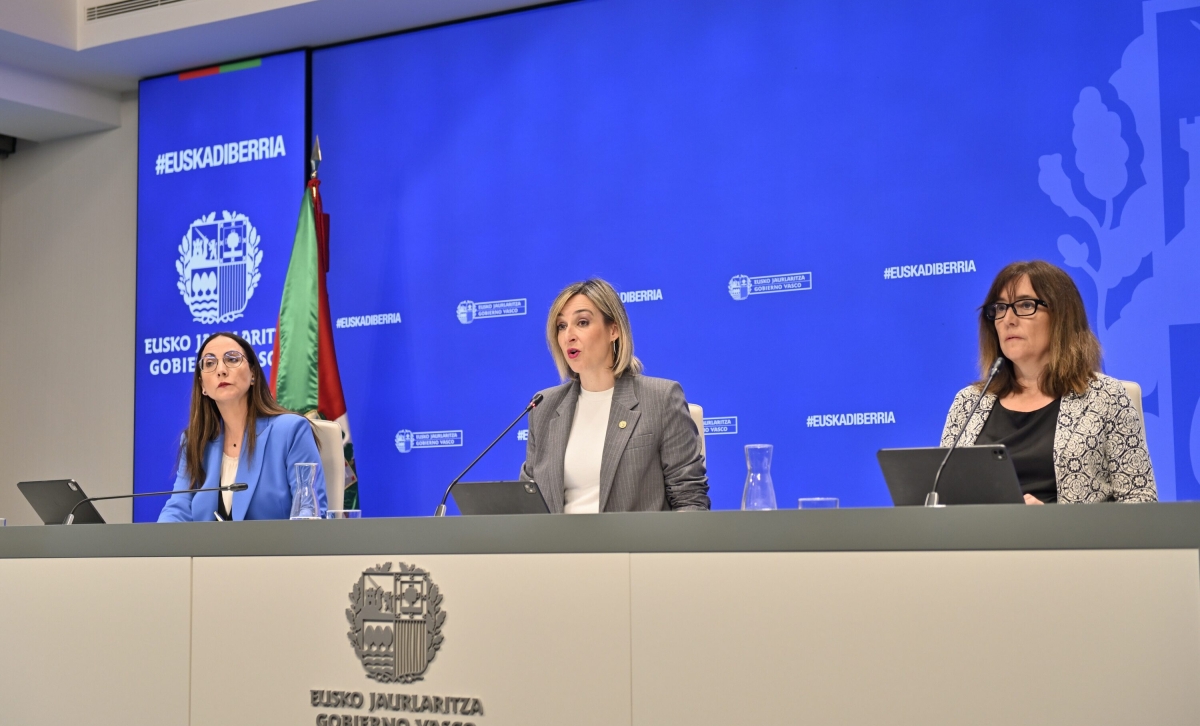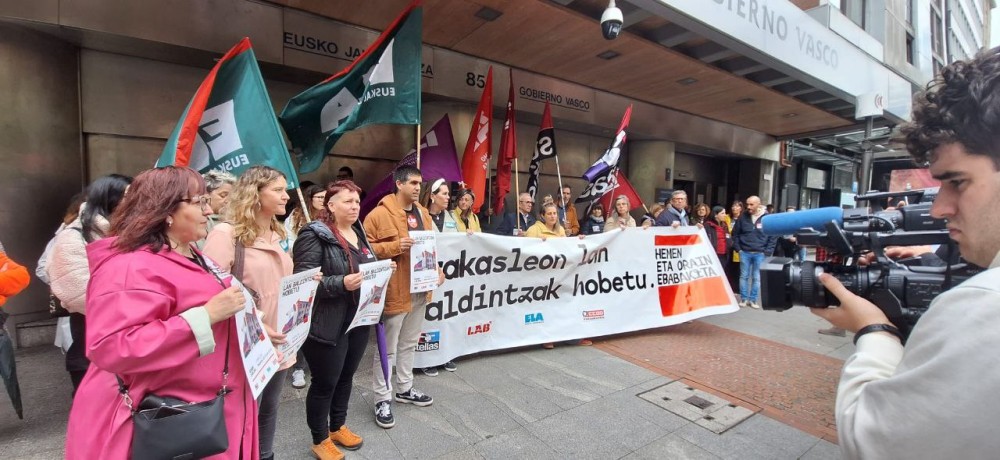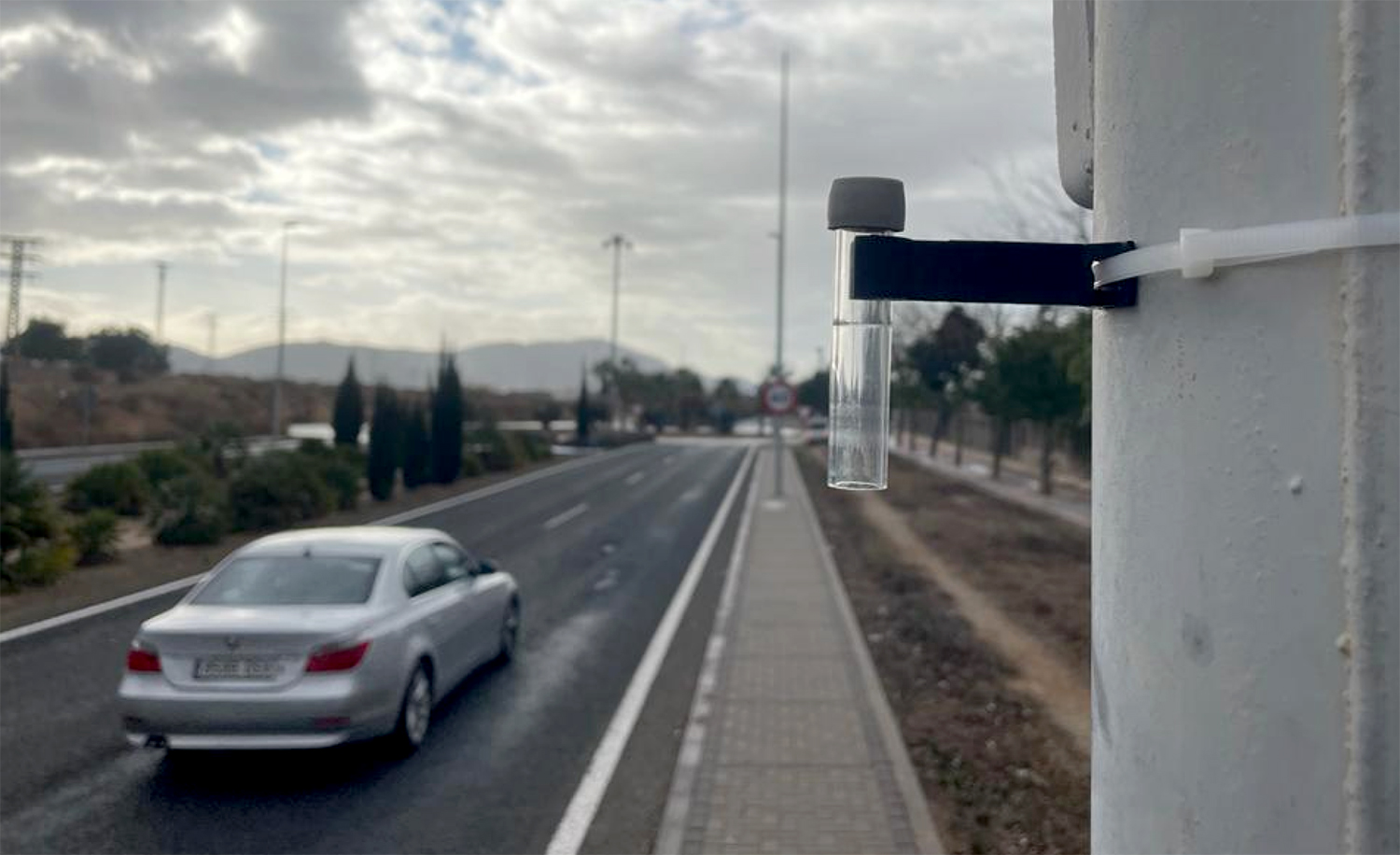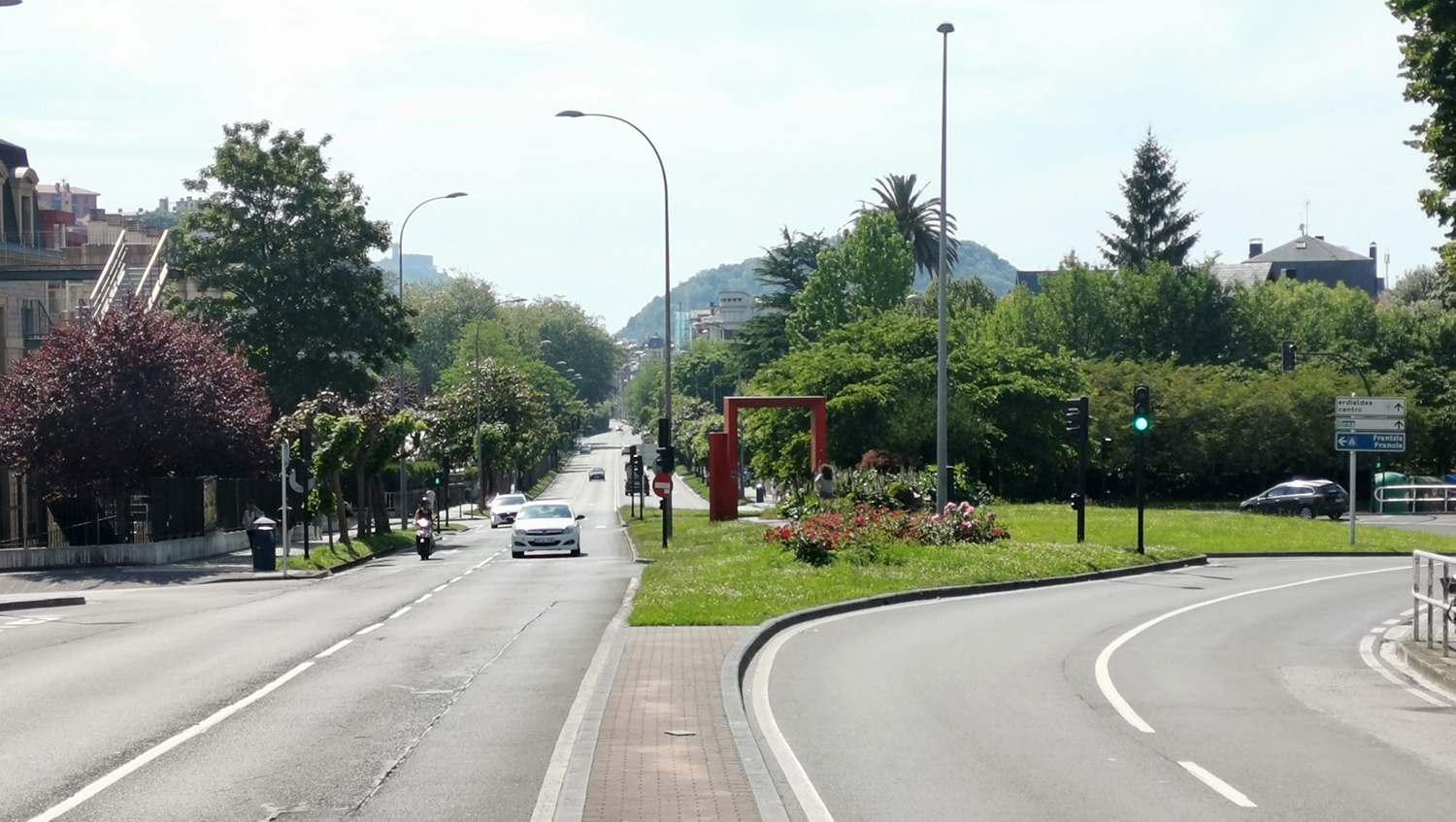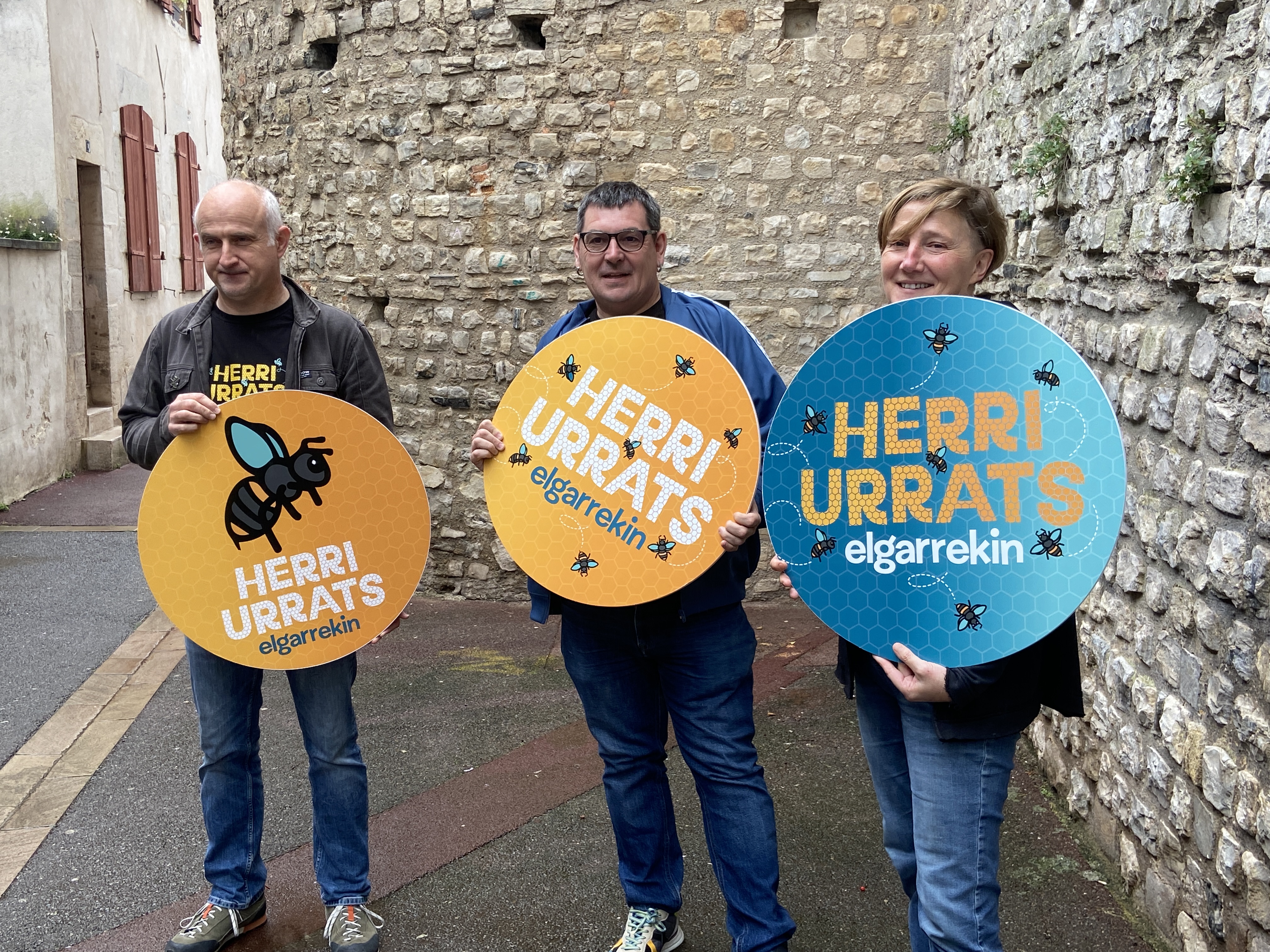"Camps were created to respond to the demand of teachers"
- The Txatxilipurdi free time association of Arrasate emerged from the Arrasate Euskaldundu Dezagun association. In Ludoteca, Gazte Txoko, Udaleku and other activities work year-round with hundreds of children and young people aged 0-18. The challenge now is to get the Basque from the enclosed spaces to the street so that the work done in the school can be continued in the daily life of the locality.
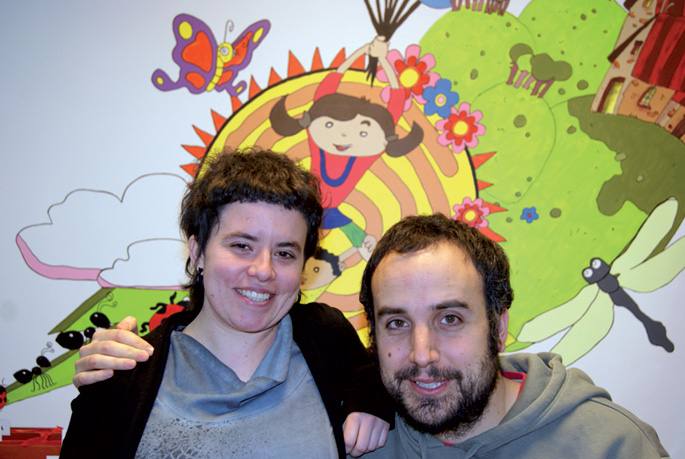
How important is the collaboration between the people and the school to promote the use of Euskera?
ENEKO BARBERENA Recently the Arrue study has been presented, one of the conclusions of it is that in many school cases the island is sociolinguistic. And in other values it's also island, co-education, etc. If it is an island and the situation of the Basque country on the street goes in another direction, the school is a very powerful tool, but only she cannot euskaldunizar. We need to get in touch with the agents of Basque culture who are on the street and at school to work together in some directions, or else it will remain an island. In addition, children, as age increases, perceive this contradiction, as seen in the study Arrue: in the guided spaces and when the educator is above them it is a use and when they are among them it is another.
AIZPEA OTXANDIANO Many children relate Euskera to specific areas. Different agents can extend the use of Euskera to the streets, to the neighborhoods, to the people, to promote the use of Euskera in the broadest possible scope of daily life.
What is that collaboration in practice?
R. BARBERENA When there is trust in the people, different collaborations are created. For example, when high school teachers have seen a strong group of students, who are Euskaldunes and agents, they have told us: “Follow these young people, because at school we have realized that these young people are engaged, passionate... They can be suitable for free time monitors.” On the contrary, in the association of Euskera we can realize which topics or areas are worthy of being worked at school in young people. In the villages there are natural reception areas. Because some of us are the children of teachers, others because they are members of the Basque association, because the children of the association's partners work in the school... In daily life there are a thousand networks of relationships that have to be cared for.
In Arrasate in the 1990s, the teachers asked the Basque association to make colonies in September, as many children lost the ability to speak Basque in summer. They have since been organized for years. They made it natural to go to the Arrasate Euskaldun Dezagun association and show their need.
A. OTXANDIANO. The summer colonies of Arrasate were also created, in part, at the request of the faculty. Students who did not receive Euskera at home lost ease in two and a half months.
R. BARBERENA For this, it is important that teachers know the people, so that they know the organizational networks in the people, so that they know who can help if necessary. The professor who comes from outside and for the short run will have it difficult.
A Transmission Table has been created on the return of the Arrasate City Hall. Who and what did you get together for?
R. BARBERENA We met thirteen or fourteen agents, and in December we signed an agreement: those who are responsible for adult literacy, public schools and ikastolas, and those who work for leisure in Basque. The objective is to work on the issue of transmission from different factors: that what is worked in the school has continuity in free time, and that it is completed with parents and students who are literate.
A. OTXANDIANO. The first job has been to see the gaps at the local level. Define what needs we saw to give the transmission. And reconcile the reality of schools, adult literacy, and Txatxilipurdi's. Everyone in his view, but we have agreed with the reading of reality and we have seen that something needs to be done. And that if we do it together, it will be more effective. Those in the schools were worried, they said, “A few years ago, when the teacher was walking in the hallways, the students spoke in Euskera out of shame. Today also, the Basque Country has not limited itself to the class.”
R. BARBERENA Look at the weak motive that was at the base, is it a shame that forced us to do it in Basque?
A. OTXANDIANO. I don't know if it was a shame or a respect, but I did change language to the teacher's authority. And today that doesn't happen. It is limited to the interior of the class, and some students do not speak Basque to the teacher.
R. BARBERENA In Arrasate, everything has been model D for years. How far have the Castilian and Basque Castilian speakers been used? The theme is also very related to linguistic competence, as they do not have the capacity to argue in Basque before the teacher. That happens to many parents, even though they feel Euskaldunes. They're able to do it with a child, but I can't imagine what time they have to go home with a teenager. And they declare themselves Basques, they would never go to literacy.
The spaces have been lost and the reflection of the street has been imposed. At the linguistic level, the street has been introduced into school. Our doubt is whether the parents of today have the mentality of those of before, “we are Castilian paradox but we will try to euskaldunify our sons and daughters.” If you're aware of your disability, you put a lot of effort into Euskaldunizar the descendants. But we should see what many fathers and mothers who define themselves as Basques are capable of transmitting and transmitting. However, it is also a very sensitive issue to raise.
A. OTXANDIANO. At the Transmission Table we have put all this diagnosis on the table and we have set three objectives: to see what we can do with young people and children in schools, to see what we can do with AEK and the municipal Euskaltegi to drive transmission together with parents, and finally to make a local transmission campaign to raise awareness of the influence they have on their offspring.
Leisure does a great job outside school, driving the use of Euskera. On the other hand, has it not meant a total reduction in the free time of children, constantly putting them under the supervision of their guardians?
A. OTXANDIANO. The key is how this free time group carries out its activities. If the educating person organizes the activities they want every day, they are activities very directed to children, who leave school and take a couple of hours more to a kind of school. If instead you remember with the children what they want and what they do not, if you create activities with them and also help them do it in Basque, the child or the young woman will feel at ease and in Basque.
R. BARBERENA Some of the tools that the free time had in recent years have been taken over by the school, and that's positive. The school is not as we know it as a child, in Arrasate the classrooms are organized by corners and the child can choose in the morning what activity he wants to do, at least in the first years. In the ikastola they have also reflected on the space that housed the project of Rafael Cristóbal for the future. It was the flag of leisure, freedom, joy ... He has taken the classes on board and has departed from the textbooks. This has led to leisure asking itself: What's our role? How far are we offering the free time we want and how much do the children want it? For two or three years, almost every week we are being questioned. Our question is how to make the Ludoteca so that it is not a colored jail, knowing that with the climate of Euskal Herria in many moments closed spaces are necessary. And since we've targeted children to the enclosed and enclosed spaces, how to get them out of there. Our goal is to turn the whole neighborhood into a playful space. What we intend with this is that the use of the language previously associated with a closed space is related to the use of the language of an entire neighborhood. We're getting kids to play in the plaza before they go to the library. Let's see if we can have that square game in Euskera. They do not relate Euskera only to certain spaces.
At school, teachers and free time monitors, do young people also relate Euskera to transgression or only to norms?
R. BARBERENA Luis Azpiazu carried out a work on transgression and won the Reflection-Cluster Award for Sociolinguistics. One of the conclusions of the study was that it analyzed the linguistic habits and music of many adolescents, among other themes. In adolescence, in the age of transgression, what do young people rebel against? Against parents and school, which are the strengths of Euskera. It is very natural, it is framed within the transgression of adolescence. The data from Arrasate shows that, some of those who have left in adolescence translate to Basque in adulthood. Others don't.
A. OTXANDIANO. Faced with this, there are no magic sticks. We must analyse and test the reality of the people and the reality of these young people.
R. BARBERENA It's not easy. You go to the pediment to play with the children, and if those who paddle are not in Spanish. It's like traffic lights. In the face of the red light, the children and the parents stay and the rest of the people run by. What does the child think? “When I am an adult, I will also pass.” And what does the father think? “If I didn’t have this evil child sucking in my hand, I’d be waiting for me here!” Others are sabotaging the father's work. If we all stopped, road education would be different. If those who talk about the paddle speak in Basque, the children would receive “kontxo, these girls speak in Basque.” And how many expressions, insults, comments ... In the free time group we say it jokingly, we have to hire extras like the Hollywood ones!
The Department of Education reported on diagnostic evaluations in February: He talked about the mid-stage of 2023 and the end-stage of 2024. Since the disastrous results would show that we have a structural problem, the department decided to comply with the procedure (publish... [+]
I found the old news on the LIGHT ephemeris channel: On April 23, 1918, Irish workers went on a general strike in I. Against forced recruitment for World War II. Thanks to the response of the workers and independence supporters, Britain was forced to retreat.
We don’t have to... [+]







